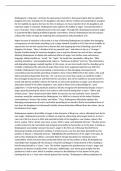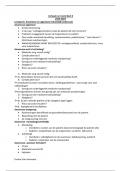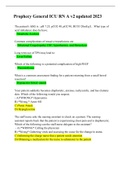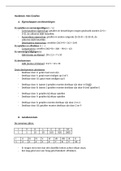Essay
How is anger presented in King Lear?
- Module
- King Lear
- Institution
- PEARSON (PEARSON)
Shakespeare’s ‘King Lear,’ portrays the eponymous character’s downward spiral after he splits his kingdom into two, handing it to his daughters who have ulterior motives but banishing his youngest for her inability to express her love for him. In doing so, he faces rejection from his daught...
[Show more]












